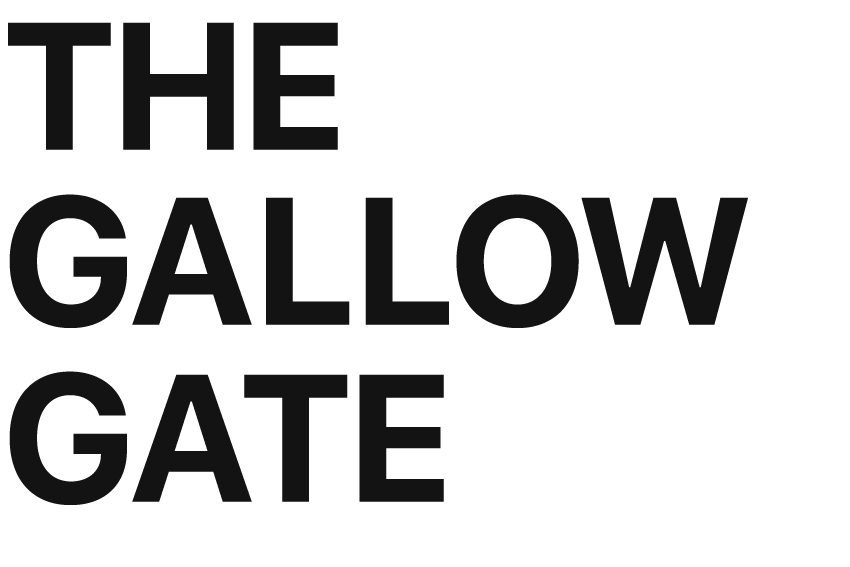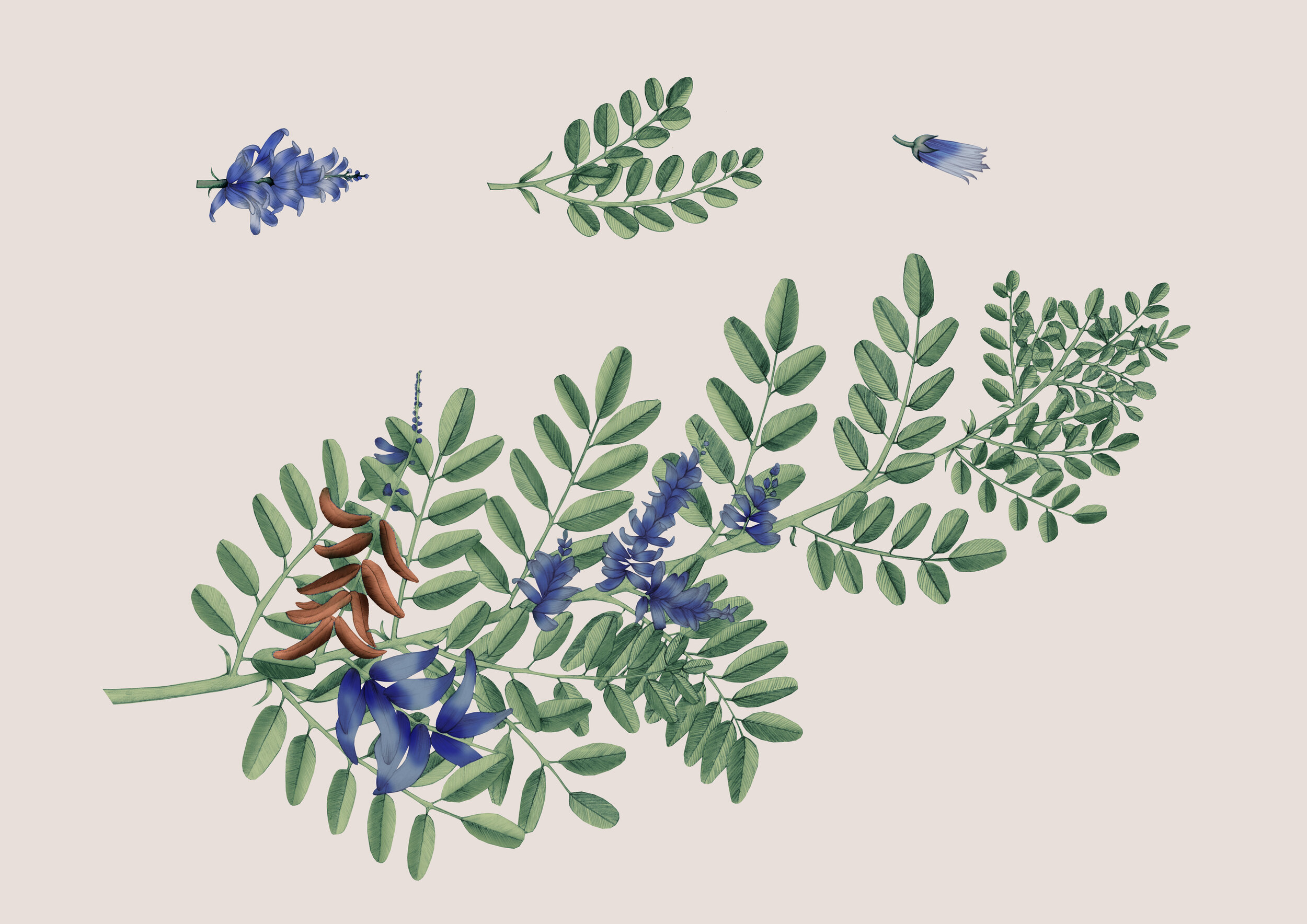Hushed:
Ndidi Dike, Lucille Junkere,
Raisa Kabir, Joyce Woodcock
Produced by Natalia Palombo
for Glasgow International 2020(21)
Hushed: on indigo and other things that moved (publication) is available in print by emailing natalia@manystudios.co.uk, and digitally via the link below.
Between 2019 and 2020, Ndidi Dike developed a new body of research towards the artist’s first presentation in Scotland. Titled Hushed, this exhibition was to focus on a site-specific installation and the artist’s presence in Scotland was imperative to the creation of the work.
Instead, as a response to the pandemic, a publication of the same name unpicks Dike’s research into the colonial cloth trade, paying particular attention to plants that have been used as sources of the blue dye indigo, in conjunction with interlinking research by various other artists. Hushed includes images from Dike’s research, a conversation with curator Natalia Palombo, an interview with Joyce Woodcock, and commissioned text from artists Raisa Kabir and Lucille Junkere.
Dike’s practice often examines global histories, including the pre- and post-colonial legacies of slavery, forced migration, resource extraction and the political dimensions of commodity cultures. While referring to the local context of Glasgow and the accountability of Scotland’s own history, Hushed is rooted in the impact of colonialism in ex-colonies, such as Nigeria, but also more broadly across West Africa and the Caribbean.
The interviews in this publication reflect on two and a half years of conversations between the curator and the lead artist, Ndidi Dike, and Joyce Woodcock. Joyce Woodcock is artist who worked with Natalia Palombo and Ndidi Dike to grow woad and indigo plants in the south of Scotland. The audience comes into the conversation at the end of the project as the practitioners reflect on the interrupted process of exhibition-making as a result of the COVID-19 pandemic.
Raisa Kabir and Lucille Junkere were commissioned in early 2021. These texts sit outside the project, in some ways; inviting the artists to create new work that responds to their artistic practice and their personal and professional relationship to Indigo and Jute.
This project is supported by Glasgow International, British Council, the National Lottery through Creative Scotland.
The publication is edited by Lavendhri Arumugam and designed by Manuel Fernández Rodríguez.
Ndidi Dike is a British/Nigerian sculptor and a multi disciplinary artist working across a multiplicity of fields, including lens-based media, collage, mixed media painting and installation.
Born in London, Dike returned to Nigeria to train as a painter, graduating in 1984 from the University of Nigeria, Nsukka, with a BA degree in Fine and Applied Arts.
Dike’s process is research-based and her long term projects explore the subjugation of the enslaved and forced migrations through topics including the Transatlantic Slave Trade, gender inequity, pre- and post- colonial culture in Africa, the effects of the extractive industrial complex in Africa, living patriarchy and dimensions of commodity culture.
Exhibitions
Exhibitions include: State of The Nation: New Works and Installations, National Museum Onikan, Lagos (2016); Constellations: Floating Space, Motion and Remembrance, Iwalewahaus Bayreuth (2017); In The Guise of Resource Control, VillaVasslieff, Paris (2017); Ex-Africa, Centro Cultural Banco do Brasil (2017-2018); Belo Horizonte Brasil; Vanishing Voices 11th Bienal do Mercosul, Porto Alegre (2018); Dak’Art Biennale (2018); Feedback: Art, Africa and the 1980s, Iwalewahaus (2018); Prince/sses Of The City, Palais de Tokyo, Paris (2019); Lagos Biennial at Independence House, Lagos (2019); Look At This, Die Pinakotheken, Munich (2020); Commodities of Consumption and Sites of Extraction in the Global South, Alliance Francaise, Lagos (2021); Working Through an Impass, Art Twenty One, Lagos (2021);
Residencies
Residencies include: Ragdale Foundation, Lake Forest, Illinois; Yorkshire Sculpture Park; TENQ in Senegal Africa ‘95 program; Gasworks, London; Jogja Biennale XIII: Hacking Conflict (2015); Iwalewahaus, Bayreuth (2018); Villa Vasilieff Penord Ricard Fellow, Paris (2017).



